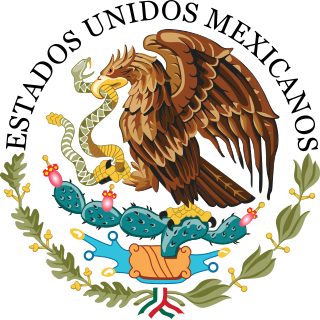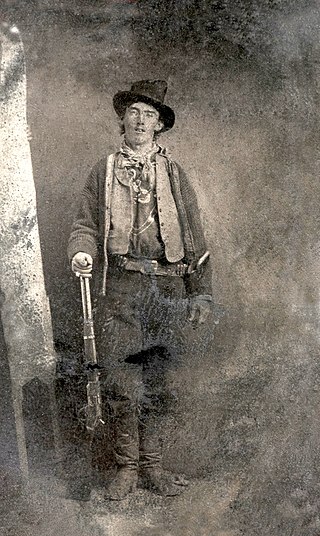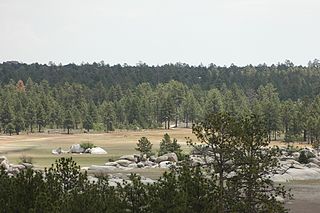Related Research Articles

The politics of Mexico function within the framework of a federal presidential representative democratic republic whose government is based on a multi-party congressional system, where the President of Mexico is both head of state and head of government. The federal government represents the United Mexican States. It is divided into three branches: executive, legislative, and judicial, established by the Political Constitution of the United Mexican States, published in 1917. The constituent states of the federation must also have a republican government based on a congressional system established by their respective constitutions.

The United Mexican States is a federal republic composed of 32 federal entities: 31 states and Mexico City, an autonomous entity. According to the Constitution of 1917, the states of the federation are free and sovereign in all matters concerning their internal affairs. Each state has its own congress and constitution.

The Institutional Revolutionary Party is a political party in Mexico that was founded in 1929 as the National Revolutionary Party, then as the Party of the Mexican Revolution and finally as the PRI beginning in 1946. The party held uninterrupted power in the country and controlled the presidency twice: the first one was for 71 years, from 1929 to 2000, the second was for six years, from 2012 to 2018.

The United States Marshals Service (USMS) is a federal law enforcement agency in the United States. The Marshals Service serves as the enforcement and security arm of the U.S. federal judiciary, and it is an agency of the U.S. Department of Justice and operates under the direction of the U.S. Attorney General. U.S. Marshals are the original U.S. federal law enforcement officers, created by the Judiciary Act of 1789 during the presidency of George Washington as the "Office of the United States Marshal" under the U.S. District Courts. The USMS was established in 1969 to provide guidance and assistance to U.S. Marshals throughout the federal judicial districts.

Henry McCarty, alias William H. Bonney, better known as Billy the Kid, was an American outlaw and gunfighter of the Old West who was linked to nine murders: four for which he was solely responsible, and five in which he may have played a role alongside others. He is also noted for his involvement in New Mexico's Lincoln County War.

Baja California, officially the Free and Sovereign State of Baja California, is a state in Mexico. It is the northwesternmost of the 32 federal entities of Mexico. Before becoming a state in 1952, the area was known as the North Territory of Baja California. It has an area of 70,113 km2 (27,071 sq mi) and comprises the northern half of the Baja California peninsula, north of the 28th parallel, plus oceanic Guadalupe Island. The mainland portion of the state is bordered on the west by the Pacific Ocean; on the east by Sonora, the U.S. state of Arizona, and the Gulf of California; on the north by the U.S. state of California; and on the south by Baja California Sur.

The Congress of the Union, formally known as the General Congress of the United Mexican States, is the legislature of the federal government of Mexico. It consists of two chambers: the Senate of the Republic and the Chamber of Deputies. Its 628 members meet in Mexico City.

The Chamber of Deputies is the lower house of the Congress of the Union, the bicameral parliament of Mexico. The other chamber is the Senate. The structure and responsibilities of both chambers of Congress are defined in Articles 50 to 70 of the Constitution.

The North American Central Time Zone (CT) is a time zone in parts of Canada, the United States, Mexico, Central America, and a few Caribbean islands.

The Mexican Empire was a constitutional monarchy and the first independent government of Mexico. It was also the only former viceroyalty of the Spanish Empire to establish a monarchy after gaining independence. The empire existed from 1821 to 1823, making it one of the few modern-era independent monarchies in the Americas. To distinguish it from the later Second Mexican Empire (1864–1867) under Emperor Maximilian, this historical period is commonly referred to as the First Mexican Empire. The empire was led by former Royal Spanish military officer Agustín de Iturbide, who ruled as Agustín I.

Guasave is a city and the seat of the homonymous municipality known as the Agricultural Heart of Mexico in the Mexican state of Sinaloa. It is located in the northwestern part of Mexico, 62km southeast of the city of Los Mochis and 150km northeast the state capital Culiacán. It stands at 25°34′04.5″N108°28′10.8″W.

Elections in Mexico are held every 6 years to elect a president and every 3 years to elect a legislature. These elections determine who, on the national level, takes the position of the head of state – the president – as well as the legislature.
Víctor Manuel Camacho Solís was a Mexican politician who served in the cabinets of presidents Miguel de la Madrid and Carlos Salinas. Born in Mexico City to Manuel Camacho López and Luz Solís, he belonged to the Frente Amplio Progresista. At first he was affiliated with the PRI, later with the Party of the Democratic Center and then with the Party of the Democratic Revolution.

Mexico, officially the United Mexican States, is a country in the southern portion of North America. Covering 1,972,550 km2, it is the world's 13th largest country by area; with a population of over 130 million, it is the 10th most populous country and has the most Spanish speakers in the world. Mexico is a constitutional republic comprising 31 states and Mexico City, its capital and largest city, which is among the world's most populous metropolitan areas. The country borders the United States to the north; as well as Guatemala and Belize to the southeast. It has maritime borders with the Pacific Ocean to the west, the Caribbean Sea to the southeast, and the Gulf of Mexico to the east.
The federal electoral districts of Mexico are the 300 constituencies or electoral districts into which the country is divided for the purpose of federal elections. Each district returns one federal deputy, who sits in the Chamber of Deputies, the lower house of Congress. An additional 200 deputies are elected by proportional representation from the five electoral regions.

The Federal Government of Mexico is the national government of the United Mexican States, the central government established by its constitution to share sovereignty over the republic with the governments of the 31 individual Mexican states, and to represent such governments before international bodies such as the United Nations.
The National Regeneration Movement, commonly referred to by its syllabic abbreviation Morena, is a major left-wing populist political party in Mexico. As of 2023, it is the largest political party in Mexico by number of members; it has been the ruling party since 2018, and it won a second term in the 2024 general election.

The nations of Mexico and Thailand established diplomatic relations in 1975. Both nations are members of the Asia-Pacific Economic Cooperation, Forum of East Asia-Latin America Cooperation and the United Nations.

The nations of Mexico and Vietnam established diplomatic relations in 1975. Both nations are members of the Asia-Pacific Economic Cooperation, Forum of East Asia-Latin America Cooperation and the United Nations.
The LXIII Legislature of the Congress of the Union, the 63rd session of the Congress of Mexico, was made up of senators and deputies that are members of their respective chambers. It convened on September 1, 2015, and concluded on August 31, 2018. It was succeeded by the LXIV Legislature in 2018.
References
- ↑ "Curricula". Chamber of Deputies. Archived from the original on 4 March 2016. Retrieved 13 March 2015.